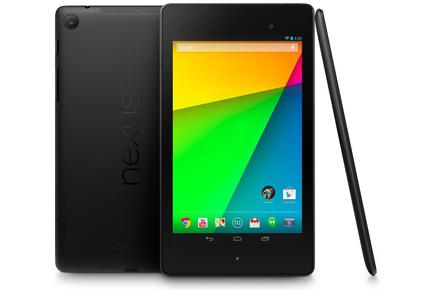IDC trims tablet forecasts, expects wearables, 'phablets' to affect sales
- 29 August, 2013 19:47
Researcher IDC today slightly lowered its tablet shipment forecast for 2013 and beyond, saying that competing technologies, including larger-sized smartphones and futuristic wearable computing devices will steal some dollars that would have gone to tablets.

In its revised predictions, IDC trimmed 2013 tablet shipment expectations by 1% from 229.3 million units to 227.4 million.
The change also affected forecasts IDC has made for the years 2014-17. Today, IDC said global tablet shipments in 2017 will almost reach 407 million, about 1% less than a May estimate of 410 million.
IDC's projection for 2013, however, hinges on the tablet business having a bang-up back half of the year.
"A lower than anticipated second quarter, hampered by a lack of major product announcements, means the second half of the year now becomes even more critical for a tablet market that has traditionally seen its highest shipment volume occur during the holiday season," said Tom Mainelli of IDC in a statement.
Apple's iPad, for example, had a disappointing second quarter, with tablet shipments down 14% from the same period the year before. Like Mainelli, Apple CEO Tim Cook explained the downturn on the company's lack of a new iPad in the quarter. The first Retina-equipped iPad debuted in March 2012, and sales ballooned.
Along with slightly lower shipment tallies -- which IDC attributed to the influence of larger smartphones, often dubbed "phablets" by wags, and wearable accessories that link to smartphones -- the research firm also revised the timetable when emerging market dominate the business.
Phablets and wearables will impact developed markets -- the U.S., Western Europe and Japan -- before they do other regions, said Mainelli, and cause a faster-than-predicted slowdown there.
Where earlier this year IDC predicted that developed markets would hold a very narrow edge over emerging markets in 2017, today it flipped the two, saying emerging markets -- Africa, Central and Eastern Europe, China, Latin America and the Middle East -- will account for 51% of all shipments in 2017.
Not surprisingly, China was highlighted as one of the countries expected to drive tablet sales.
"Much of the long-term growth will be driven by countries like China where projected growth rates will be consistently higher than the worldwide average," added Jitesh Ubrani, another IDC analyst, in the same statement.
If IDC's estimates end up accurate, Apple will have to adapt to retain its diminishing share of the tablet business. While the Cupertino, Calif. company dominated the market with relatively high-priced devices until 2012, ever-cheaper models based on Android are continuing to drive down Apple's share.
The price competition will only get more fierce.
"We expect average selling prices to continue to compress as more mainstream vendors utilize low-cost components to better compete with the whitebox tablet vendors that continue to enjoy widespread traction ... despite typically offering lower-quality products and poorer customer experiences," Mainelli said.

